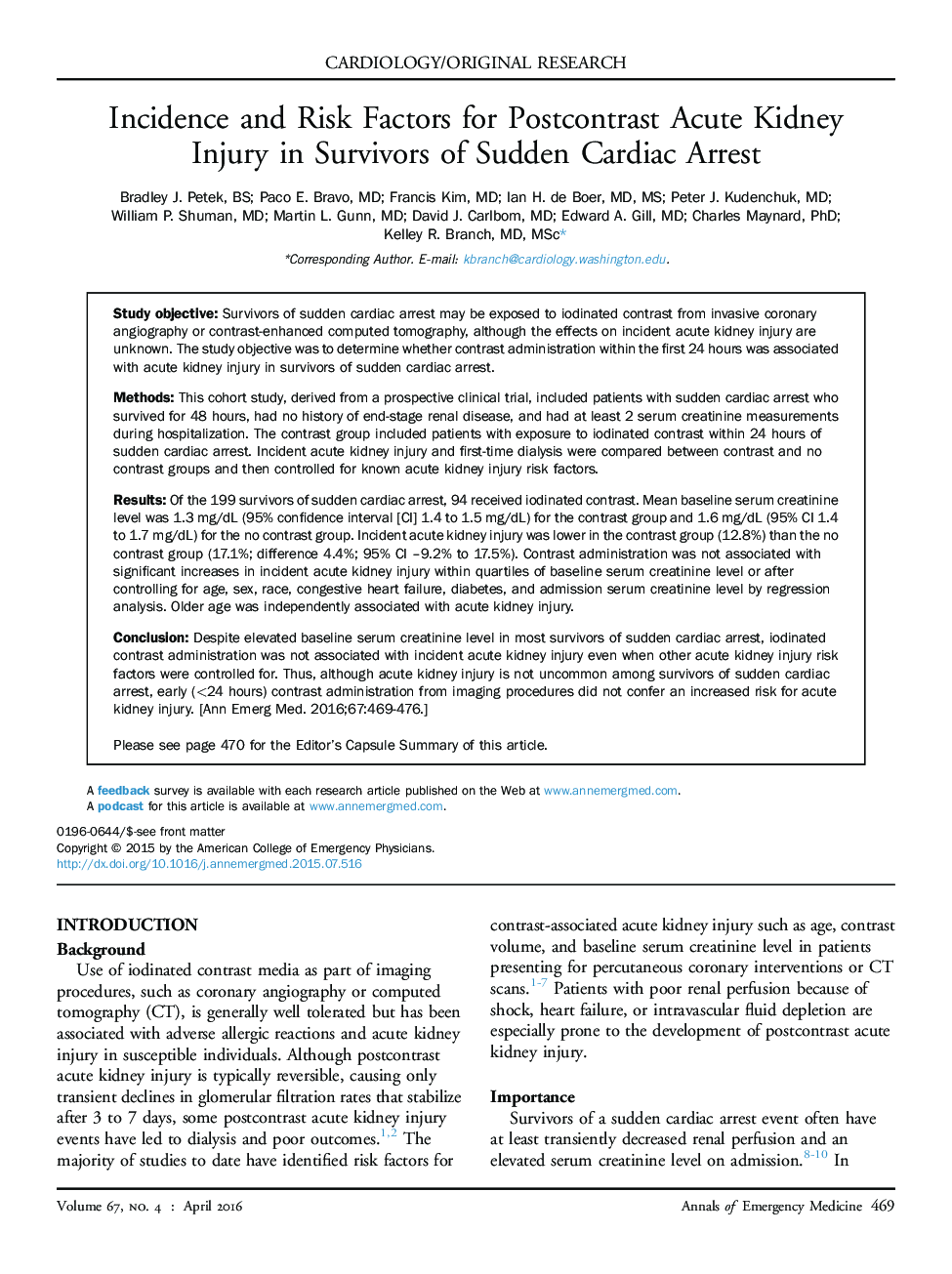| Article ID | Journal | Published Year | Pages | File Type |
|---|---|---|---|---|
| 6080810 | Annals of Emergency Medicine | 2016 | 9 Pages |
Study objectiveSurvivors of sudden cardiac arrest may be exposed to iodinated contrast from invasive coronary angiography or contrast-enhanced computed tomography, although the effects on incident acute kidney injury are unknown. The study objective was to determine whether contrast administration within the first 24 hours was associated with acute kidney injury in survivors of sudden cardiac arrest.MethodsThis cohort study, derived from a prospective clinical trial, included patients with sudden cardiac arrest who survived for 48 hours, had no history of end-stage renal disease, and had at least 2 serum creatinine measurements during hospitalization. The contrast group included patients with exposure to iodinated contrast within 24 hours of sudden cardiac arrest. Incident acute kidney injury and first-time dialysis were compared between contrast and no contrast groups and then controlled for known acute kidney injury risk factors.ResultsOf the 199 survivors of sudden cardiac arrest, 94 received iodinated contrast. Mean baseline serum creatinine level was 1.3 mg/dL (95% confidence interval [CI] 1.4 to 1.5 mg/dL) for the contrast group and 1.6 mg/dL (95% CI 1.4 to 1.7 mg/dL) for the no contrast group. Incident acute kidney injury was lower in the contrast group (12.8%) than the no contrast group (17.1%; difference 4.4%; 95% CI -9.2% to 17.5%). Contrast administration was not associated with significant increases in incident acute kidney injury within quartiles of baseline serum creatinine level or after controlling for age, sex, race, congestive heart failure, diabetes, and admission serum creatinine level by regression analysis. Older age was independently associated with acute kidney injury.ConclusionDespite elevated baseline serum creatinine level in most survivors of sudden cardiac arrest, iodinated contrast administration was not associated with incident acute kidney injury even when other acute kidney injury risk factors were controlled for. Thus, although acute kidney injury is not uncommon among survivors of sudden cardiac arrest, early (<24 hours) contrast administration from imaging procedures did not confer an increased risk for acute kidney injury.
